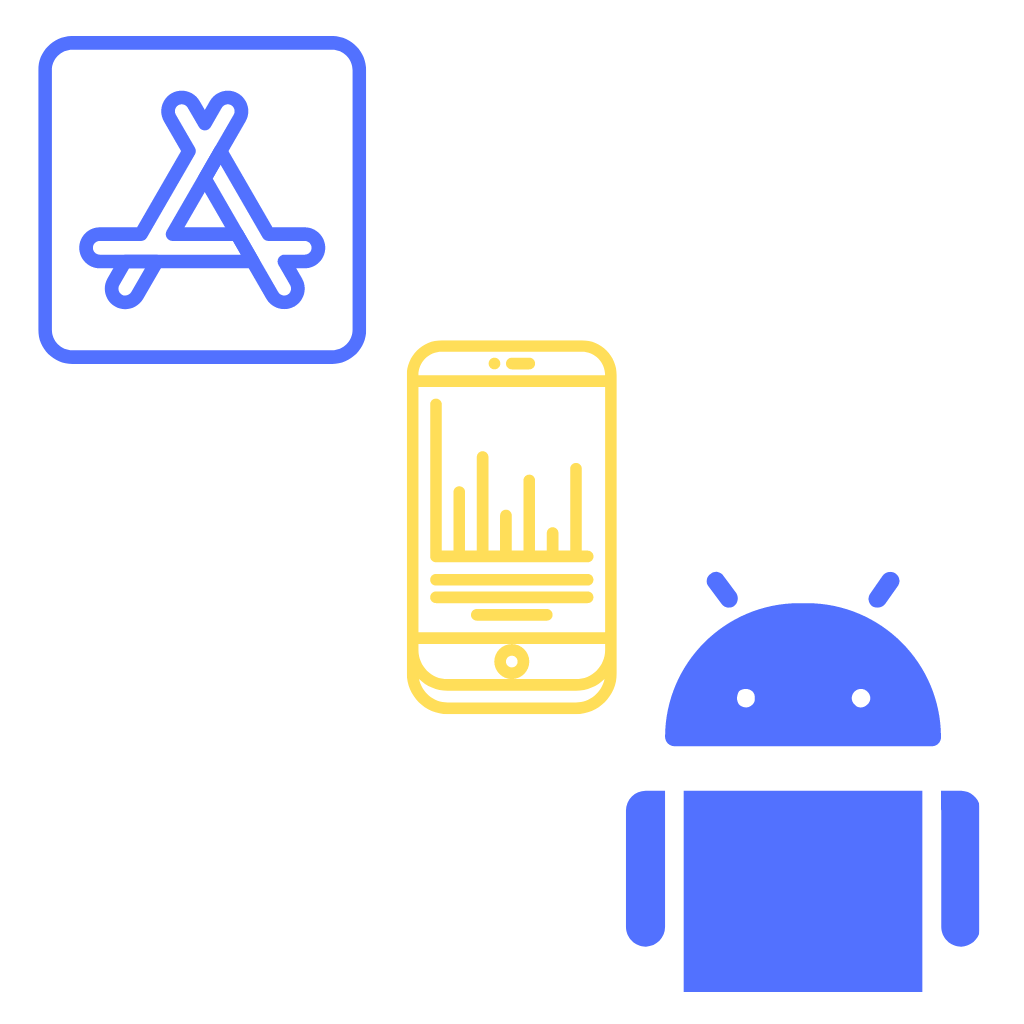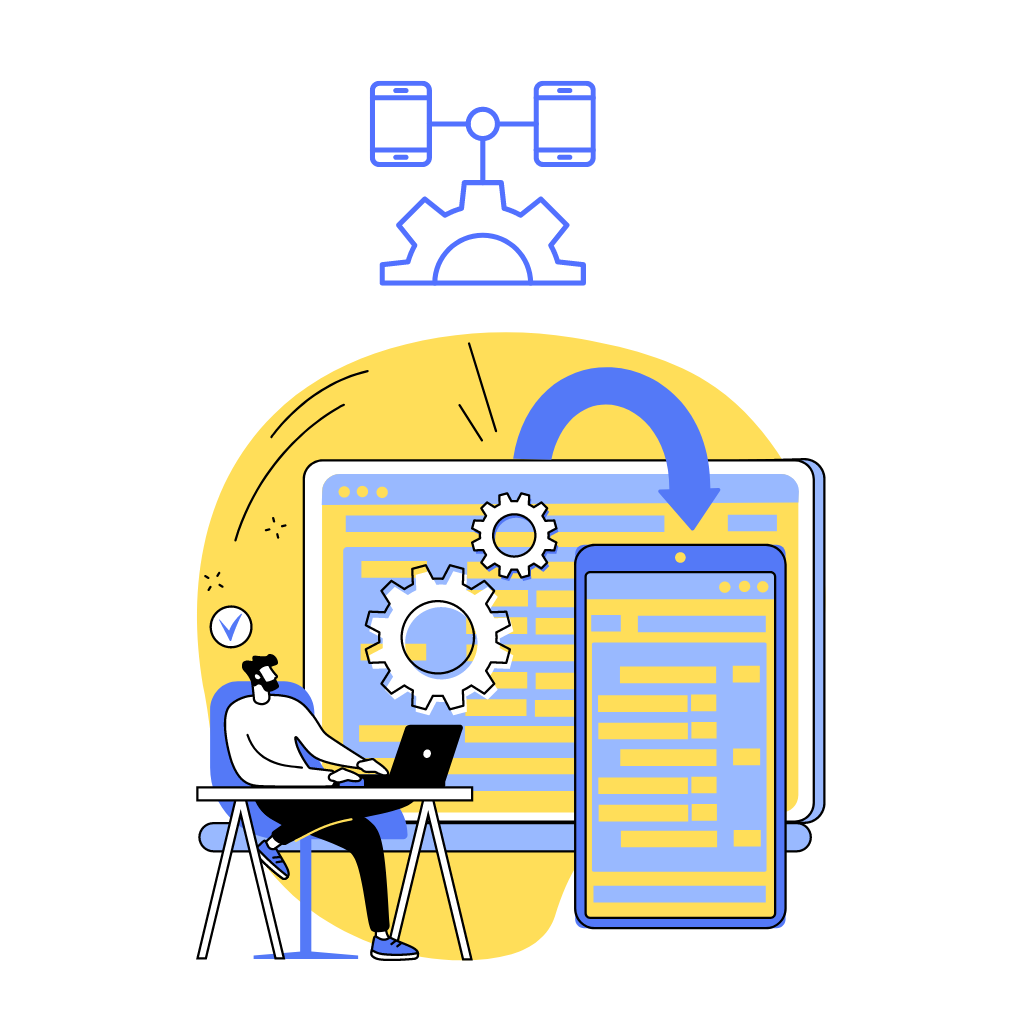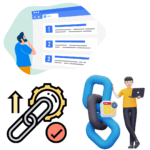Things to Consider While Choosing the Right Platform for App Development
The world of mobile app development is thriving, with millions of apps available on various platforms. Whether you’re an entrepreneur with a groundbreaking idea or a business looking to expand its digital presence, choosing the right platform for app development is a critical decision that can significantly impact your app’s success. In this comprehensive guide, we’ll delve into the essential factors to consider when making this important choice.

Define Your Target Audience
Understanding your target audience is the first and foremost step in choosing the right platform for your app. Different platforms have distinct user bases with varying demographics, preferences, and behaviors. Therefore, it's crucial to know who your potential users are and where they are most active.
iOS is often favored by users in developed countries with higher disposable incomes. On the other hand, Android enjoys a broader global reach, making it the go-to platform for emerging markets. Consider factors like age, location, and device usage patterns to determine which platform aligns best with your target audience.

Budget Constraints
Budget considerations play a significant role in determining the platform for app development. Developing an app for both iOS and Android can be cost-prohibitive for many businesses, especially startups. Therefore, it's essential to evaluate your financial resources and set a realistic budget for your app development project.
Keep in mind that the costs don’t end with the initial development; ongoing maintenance, updates, and support will also factor into your budget. Prioritize the platform that aligns with your financial capabilities and long-term sustainability.

Market Research
Thorough market research is a cornerstone of successful app development. It's essential to assess the competition and demand for your app in your chosen niche. Take a close look at similar apps on both iOS and Android to identify gaps and opportunities.
Market research will provide insights into user expectations, pricing strategies, and the potential for growth. This data-driven approach will help you make an informed decision about which platform to target.

Development Tools and Languages
Each platform requires developers to work with a specific set of development tools and programming languages. iOS apps are primarily developed using Swift or Objective-C, while Android apps are commonly built with Java or Kotlin.
Consider your development team’s expertise and the availability of developers skilled in the chosen technology stack. If you have a team proficient in one platform’s tools and languages, it may make sense to prioritize that platform.

User Experience and Design Guidelines
User experience (UX) and design guidelines differ between iOS and Android. Apple's iOS apps adhere to the Human Interface Guidelines (HIG), emphasizing a sleek, minimalistic design with a focus on user-friendly interactions. In contrast, Android apps follow Google's Material Design guidelines, which prioritize intuitive and responsive design.
Your choice of platform should align with your app’s design and user experience goals. It’s crucial to create a seamless and enjoyable user journey that meets the expectations of the platform’s user base.

App Distribution
Consider how you plan to distribute your app to users. Each platform has its app store, with distinct policies and processes. The Apple App Store is known for its rigorous review process, which aims to maintain a high standard of quality but can lead to delays in app approval. On the other hand, the Google Play Store has a more lenient review process but may have a higher volume of low-quality apps. Your choice of platform will impact your app's accessibility and the time it takes to reach users.

Monetization Strategy
Your app's monetization strategy can also influence your platform choice. iOS users have historically been more willing to pay for apps upfront, making it a suitable platform for premium or paid apps. Android, with its larger user base, offers more opportunities for revenue generation through in-app advertising and freemium models.
Consider whether you plan to charge for downloads, offer in-app purchases, or generate revenue through ads. Your choice of platform should align with your chosen monetization strategy.

Device Fragmentation
One of the unique challenges of Android development is device fragmentation. Android's ecosystem encompasses a wide range of devices with varying screen sizes, resolutions, and hardware capabilities. This diversity can complicate the development process, as you'll need to ensure compatibility across multiple devices.
iOS, with its limited device lineup (iPhone and iPad), offers a more uniform development environment. This can simplify development but may limit your reach to a smaller segment of the market.

Update and Maintenance
Developing an app is just the beginning of the journey. Regular updates and maintenance are crucial to keep your app competitive and bug-free. Different platforms have varying processes for releasing updates and addressing issues.
Consider which platform offers a smoother update process for your development team. The ability to quickly push out bug fixes and improvements can make a significant difference in user satisfaction.

Cross-Platform Development
If you're looking to target both iOS and Android without developing separate native apps, cross-platform development frameworks are worth exploring. Tools like React Native, Flutter, or Xamarin allow you to write code once and deploy it on multiple platforms.
While cross-platform development can save time and resources, it may have limitations in terms of performance and access to platform-specific features. Evaluate these frameworks to determine if they align with your app’s requirements and goals.
In Conclusion
Choosing the right platform for app development is a multifaceted decision that requires careful consideration of your target audience, budget, market research, and technical factors. By taking a systematic approach and analyzing these key factors, you can make an informed choice that aligns with your app’s goals and maximizes its chances of success in the competitive app market.
Remember that the platform choice is not set in stone, and you can always expand to additional platforms as your app grows and evolves. Keep a close eye on user feedback and market trends to adapt your strategy and ensure your app remains relevant and successful over time.





